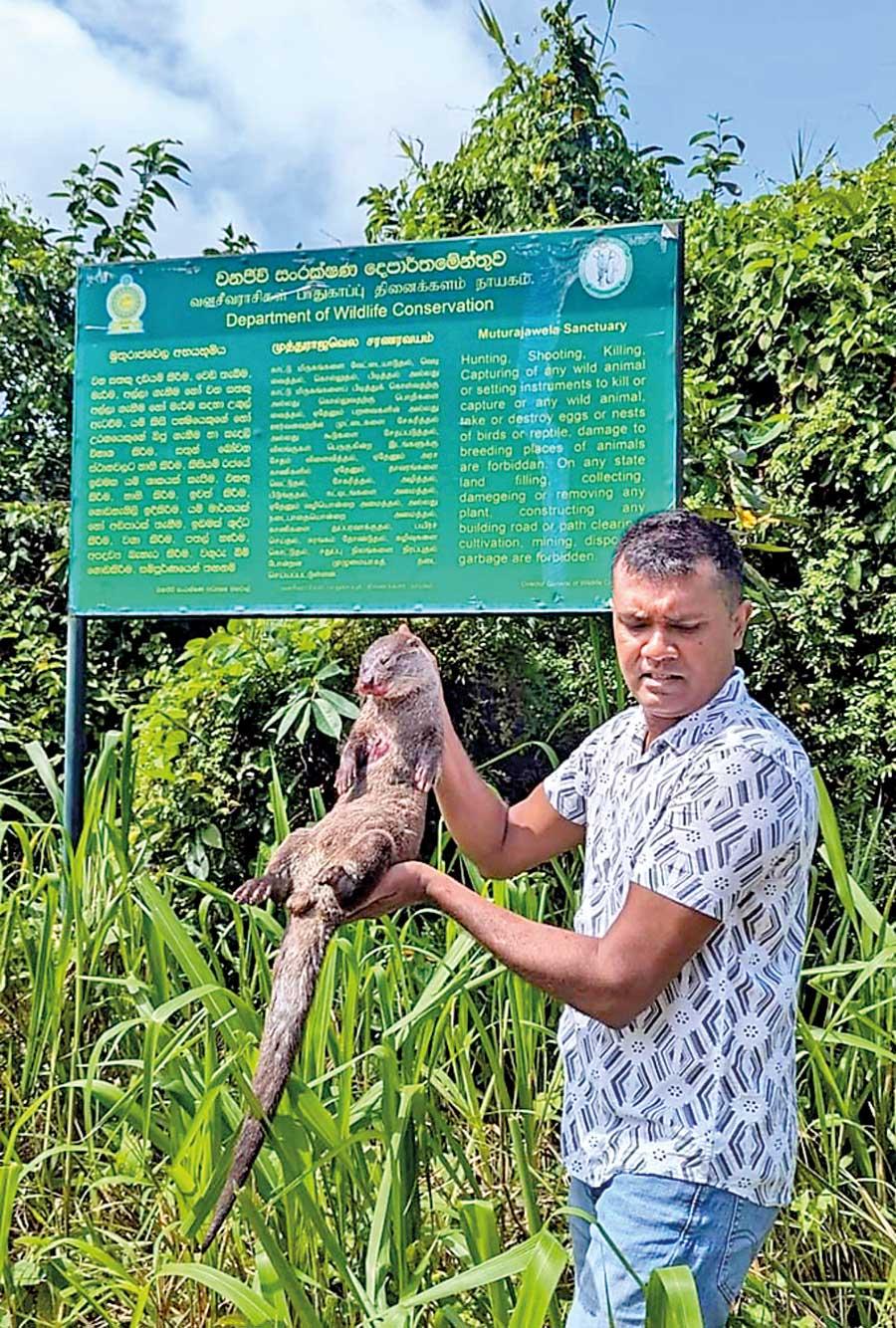08 Jul 2024 - {{hitsCtrl.values.hits}}
 Recently, within the Muthurajawela sanctuary, a well-grown Eurasian Otter, locally known as the water dog (Diyaballa), tragically lost its life due to a vehicle collision. Despite its significant
Recently, within the Muthurajawela sanctuary, a well-grown Eurasian Otter, locally known as the water dog (Diyaballa), tragically lost its life due to a vehicle collision. Despite its significant
|
Eurasian Otter
|
presence in Sri Lanka’s biodiversity, many people are unfamiliar with this fascinating creature. This note aims to raise awareness and promote the conservation of this endangered species.
Biodiversity of Sri Lanka
Sri Lanka is renowned for its rich biodiversity, with its diverse plant and animal communities playing a crucial role. Among these, the Eurasian Otter is a unique and charming animal, often mistaken for a dog due to its name, but resembling more closely a large moose.
Habitat and Behaviour
The Eurasian Otter thrives both in water and on land, showcasing exceptional diving and hunting skills. Found across all three climatic zones of Sri Lanka—wet, dry, and intermediate—these otters inhabit areas from the cold Horton Plains to sea-level swamps. Their preferred habitats include wetlands, lakes, rivers, and rice paddies, always steering clear of polluted waters.
Diet and Activity
A carnivorous species, the Eurasian Otter primarily feeds on fish and crabs. It is active both day and night, often seen alone or in pairs. With four legs and a long tail, the otter sometimes stands on its hind legs, creating endearing images.
Reproduction and Training
Female otters give birth to two or three cubs annually. These cubs stay with their mother for 12 to 15 months, during which the mother trains them to hunt. Part of this training involves leaving the cubs alone temporarily, which can be misinterpreted by well-meaning humans as abandonment.
Threats to Survival
The Eurasian Otter faces numerous threats, including water pollution, habitat destruction, and vehicle collisions. High levels of chemicals in mountain waters, swamp reclamation and highway constructions through wetlands contribute to their declining population. Without increased awareness and conservation efforts, this beautiful species is at risk of extinction in Sri Lanka.
Call to Action
We must move beyond an anthropocentric perspective and recognize the importance of preserving our wildlife. Educating ourselves and our children about the Eurasian Otter and other endangered species is crucial. By doing so, we can take meaningful steps toward ensuring their survival and maintaining the biodiversity that makes Sri Lanka unique.
Let us honour the memory of the fallen Eurasian Otter by committing to protect its species and habitat. Together, we can create a future where these magnificent creatures thrive alongside us.
The writer is a resident from Muthurajawela, environmental activist and member of the Archbishop Committee on Protecting Muthurajawela

Eurasian Otter at the Muthurajawela sanctuary
28 Dec 2024 2 hours ago
28 Dec 2024 2 hours ago
28 Dec 2024 3 hours ago
28 Dec 2024 3 hours ago